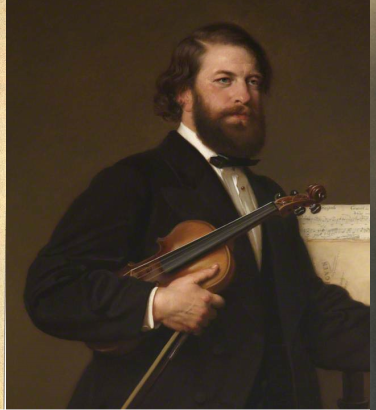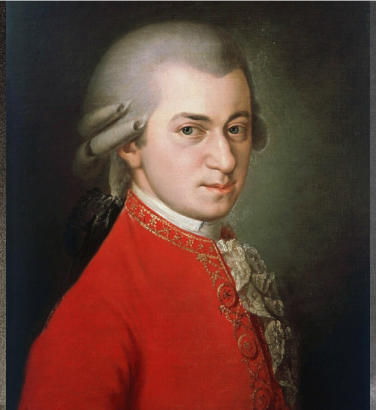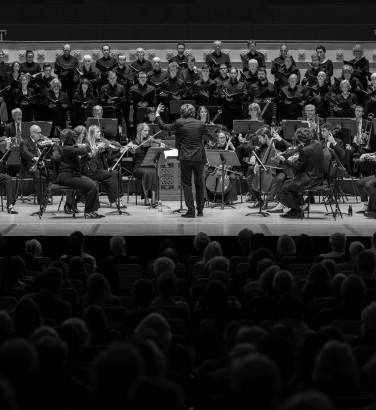
Mozart and Prague
18 Sep 2023
News Story
The Estates Theatre in Prague (as it appeared in 1830), where Mozart's operas Don Giovanni and La clemenza di Tito were premiered
Mozart is such a key part of the Salzburg and Vienna tourist boards’ marketing that it's easy to forget that his relationship with both cities could be somewhat fraught. As a court musician in his native Salzburg, he resented being treated (in his opinion) as little more than a servant and made no secret of this, eventually being booted out – literally – by his employer’s steward. He already had his sights set on conquering the Austrian capital by this point, however, and although he made the city his home for the final decade of his (short) life, he failed to find a permanent position there and struggled with audience tastes he would come to regard as fickle.
If any city should do more to celebrate its association with Mozart, this would be Prague, with whose inhabitants he enjoyed a mutually warm relationship. His first visit came after hearing of the rapturous reception given to The Marriage of Figaro there in 1786. The opera had been warmly received in Vienna, but this was nothing compared to its success in Prague, where it did so well he left the city with a welcome commission for a new opera. This would turn out to be Don Giovanni which, while a considerably darker work, still had room for a notable in-joke for the Prague audience. When the title character is entertained at dinner by an octet of wind instruments in the Act II finale, his servant Leporello responds to one of the tunes they strike up with words to the effect of “now this is one I know very well”. The music is ‘Non più andrai’ from The Marriage of Figaro, an aria to which Mozart’s beloved Prague audience needed no introduction.
Nothing is talked about except Figaro; nothing is played, blown, sung, whistled except Figaro; no opera draws the crowds like Figaro – it’s always Figaro.
From a technical perspective, the Act I finale includes a fine showcase for the skills of Prague’s musicians. As the principals gather on Don Giovanni’s estate, three dances - a minuet, contredanse and German dance (an early form of the waltz) - are played simultaneously on stage. This should result in utter cacophony, not least because of the dances' wildly contrasting moods and rhythms, but somehow Mozart makes them all fit together seamlessly. That said, his compositional tour de force (which even includes the instruments tuning up!) would have meant little without players capable of pulling it off.
Opera aside, Mozart's other gift to the Czech capital was the symphony premiered there during his first visit. It is not certain whether he had written what we now know as the Prague (with which Nicolas Altstaedt’s concerts with the SCO in October culminate) specifically for the occasion, but its music anticipates many elements of Don Giovanni. The first movement could almost be a variation on the opera’s overture, and although written in the celebratory key of D major (also the central key of Don Giovanni), the darkness of D minor, as in the opera, is never far away.
More recently, the composer’s relationship with Prague took on a new dimension thanks to Milos Forman’s 1986 film Amadeus, which tells a highly fictionalised version of Mozart’s relationship with his rival Antonio Salieri. Although Vienna was (then as now) hardly lacking in late 18th century architecture, the sheer number of satellite dishes in the city made it unviable as a filming location – unlike Prague, where such things were unheard of until the fall of communism. Being able to film scenes from Don Giovanni in the Estates Theatre, the very place where it had been premiered, may be regarded as a little bonus for local audiences, another encapsulation of their city’s appreciation of a composer they could almost call their own.
Related Stories
![A violinist shown at three different ages: as a young man in a drawing, middle-aged in a painting and elderly in an old photo]()
Joseph Joachim and the great German violin concertos
7 April 2025
Beethoven, Mendelssohn, Bruch and Brahms: four violin concertos, all connected by a single violinist.![Three men, the first two in 18th century formal dress (one in black and white, one in a red coat), the last in an old photo, smoking]()
What is a sinfonia concertante?
17 March 2025
We delve into the history of a hybrid genre ...![]()
The SCO Chorus on music for Lent
10 March 2025
With Easter just around the corner, we delve into perhaps the richest (and often darkest) choral repertoire of all ...


